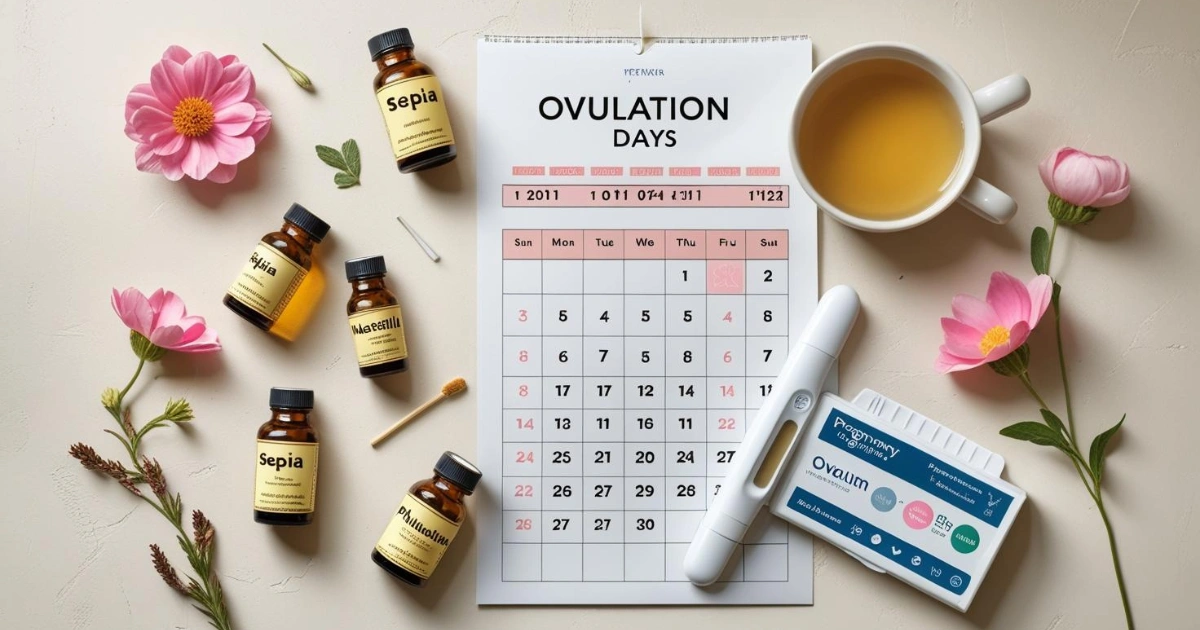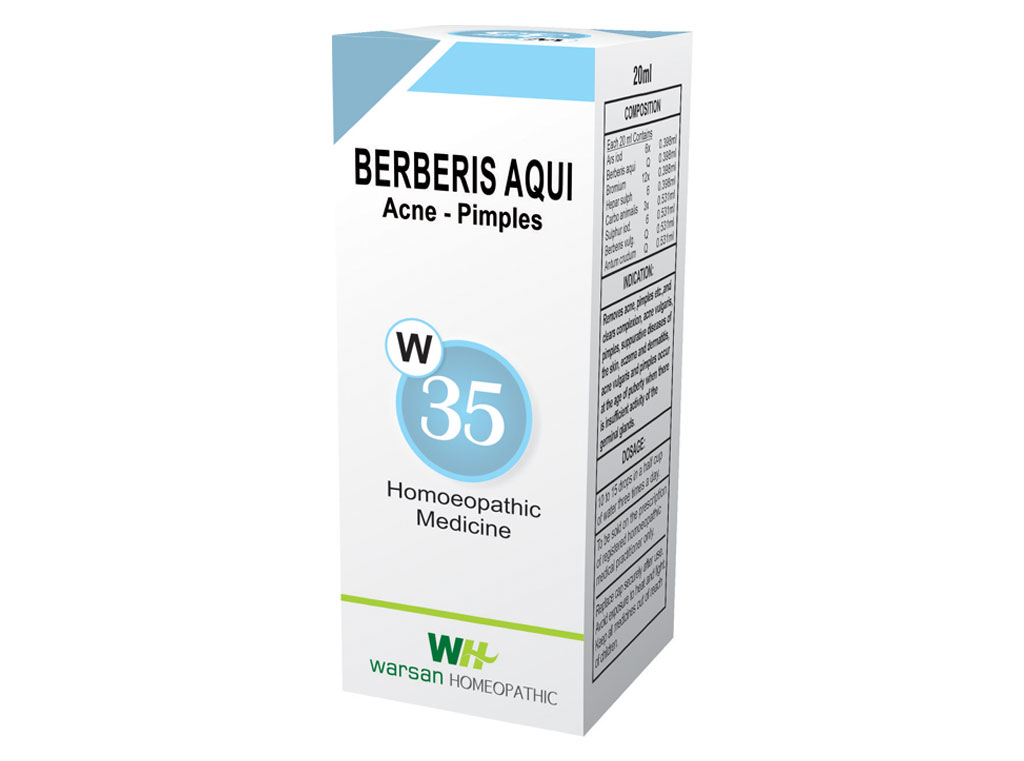Homoeopathy in Female Infertility?
Female infertility is increasingly a global concern, touching the lives of millions of women at an emotional and physical level. Since most conventional treatments are invasive and expensive, many people are seeking milder alternatives. Homoeopathy, with its individualized and holistic philosophy, presents a hopeful avenue for treating female infertility naturally and successfully.
What Is Female Infertility and Why Does It Occur?
Female infertility refers to the failure to conceive after 12 months of frequent unprotected intercourse. It can be due to:
- Hormonal imbalance (PCOS, thyroid problem)
- Structural anomalies (obstructed fallopian tubes, endometriosis)
- Lifestyle issues (diet, weight, stress)
- Decline in fertility with age
- Unknown (unexplained infertility)
These conditions not only inhibit conception but also cause irregular periods, painful ovulation, or absence of ovulation.
Homoeopathic Remedies for Female Infertility
| Infertility Pattern | Common Remedies | Benefits |
|---|---|---|
| PCOS / Hormonal Imbalance | Pulsatilla, Natrum muriaticum, Lycopodium | Regulates cycles, reduces cysts, promotes ovulation |
| Chronic PID / Tubal Inflammation | Silicea, Hepar sulphuris, Calcarea carb | Reduces inflammation, supports tubal health |
| Endometriosis (mild to moderate) | Sepia, Pulsatilla | Alleviates pelvic pain, reduces menstrual discomfort |
| Stress‑related cycle disruption | Ignatia, Argentum nitricum | Calms emotions, lowers cortisol, supports ovulation |
| Poor ovarian reserve / low fertility | Natrum muriaticum, Folliculinum, Agnus castus | Boosts ovarian function, encourages follicle growth |
Evidence & Data: Clinical Success Rates
A retrospective study of 40 women with infertility reported that 27 (67.5%) became pregnant following individualized homoeopathic treatment. Rates for success were:
- PCOS: 85% (17/20), highly significant (p=0.001)
- Chronic PID: 70% (7/10), p=0.002
- Endometriosis: 30% (3/10), p=0.206
Another report is of a woman with ovarian endometrioma
A controlled pilot study described a 30‑year‑old with poor ovarian reserve conceiving post-treatment with Natrum muriaticum ResearchGate+3Thieme+3ResearchGate+3. These clinical outcomes suggest homoeopathy can significantly support fertility—especially in PCOS and PID—when practiced constitutionally by qualified practitioners.
Warsan No. 35 (Berberis Aqui) 20ml
Pros and Cons of Homoeopathy in Female Infertility
Pros
- Personalized treatment plans: Tailored remedies based on constitution and symptoms.
- Minimal side effects: Highly diluted formulas pose low to no toxicity risk.
- Hormone-free support: A non-invasive alternative to synthetic fertility drugs.
- Emotional wellness boost: Treats anxiety, depression, and hormonal mood swings naturally.
Cons
- Slower to show results: Progress may take several months based on individual health.
- Not suitable for structural issues: Less effective in blocked tubes or advanced endometriosis.
- Outcome variability: Success heavily depends on practitioner expertise and consistency.
- Limited clinical validation: Few large-scale randomized controlled trials currently available.
Real-World Case Example
A 27-year-old with primary infertility and ovarian endometrioma became pregnant after 2 years of homeopathic treatment. Treated initially through laparoscopic cystectomy and failed IUI cycles, she was given Pulsatilla 200C constitutionally. She had regular menstruation, decreased pain, and—finally—pregnancy and live birth. This case, with a MONARCH score of +8, is representative of homeopathy’s potential when conventional approaches fail
Conclusion
Homoeopathy offers a personalized, gentle, and evidence-supported approach to managing female infertility—especially effective in PCOS, stress-induced cycle issues, and moderate tubal or endometrial problems. With studies showing a remarkable 67.5% overall conception rate, it’s a viable adjunct or alternative, particularly when conventional treatments have limited success.
Key success factors include selecting a skilled homeopath, integrating lifestyle/wellness changes, and collaborating with medical specialists. With patience, appropriate case management, and consistent follow-up, homoeopathy empowers women to reclaim health, balance, and hope on their fertility journey.
FAQs – Frequently Asked Questions
Homoeopathy treats hormonal imbalance, PCOS, endometriosis, cycle disorders due to stress through individualized medicines, aiding ovulation, health of reproductive organs, and emotional harmony—important factors in treating female infertility.
Treatment duration is different: milder cases might get pregnant in 3–6 months, while long-standing problems (PCOS, endometriosis) can take 6–18 months. Follow-up and sticking to treatment enhance results.
Side effects are few—high dilutions result in no drug-type side effects. Less often, temporary symptom worsening (“healing crisis”) might happen under the care of an experienced homeopath.
Yes. Homoeopathy can improve implantation rates, alleviate stress, and maximize cycle health. Several clinics mention enhanced response to IVF/IUI when used with individualized homoeopathic treatment.
According to studies, there is approximately 67.5% overall success. PCOS cases demonstrate 85%, chronic PID 70%, and endometriosis 30% conception rates following homeopathic treatment
Irregular or non-existent cycles, PMS, dysmenorrhoea, emotional stress, PCOS/PCOD or mild endometriosis can be helped with individualized homoeopathic care.
Yes. Baseline tests (hormones, pelvic ultrasound) direct choice of remedy and baseline measurement. Regular retesting monitors response and allows treatment modification.
In mild-moderate endometriosis, yes. Treatments such as Sepia and Pulsatilla inhibit inflammation, calm pain, and enhance fertility. Severe endometriosis can require surgical or medical adjuncts.
Yes. Treatments such as Ignatia or Argentum nitricum alleviate anxiety, decrease cortisol, regulate cycles, and enhance ovulation—a frequent fertility obstacle.
Coverage varies by locale. In Pakistan, homoeopathy tends to be self-paid. Private insurance might pay for CAM; check with your provider for details.
-
-
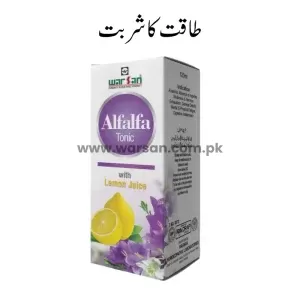 Rated 5.00 out of 5 based on 1 customer rating₨ 200 – ₨ 650Price range: ₨ 200 through ₨ 650Select options Quick View
Rated 5.00 out of 5 based on 1 customer rating₨ 200 – ₨ 650Price range: ₨ 200 through ₨ 650Select options Quick View -
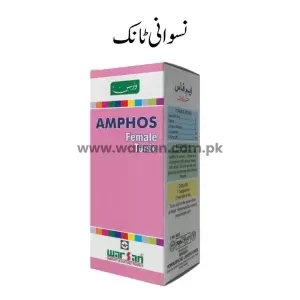 Rated 4.00 out of 5 based on 1 customer rating₨ 200 – ₨ 650Price range: ₨ 200 through ₨ 650Select options Quick View
Rated 4.00 out of 5 based on 1 customer rating₨ 200 – ₨ 650Price range: ₨ 200 through ₨ 650Select options Quick View -
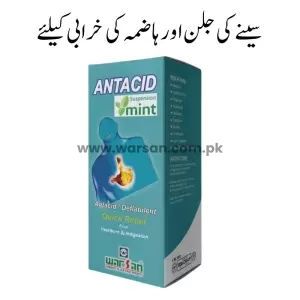 Rated 4.00 out of 5 based on 1 customer rating₨ 220 – ₨ 650Price range: ₨ 220 through ₨ 650Select options Quick View
Rated 4.00 out of 5 based on 1 customer rating₨ 220 – ₨ 650Price range: ₨ 220 through ₨ 650Select options Quick View

